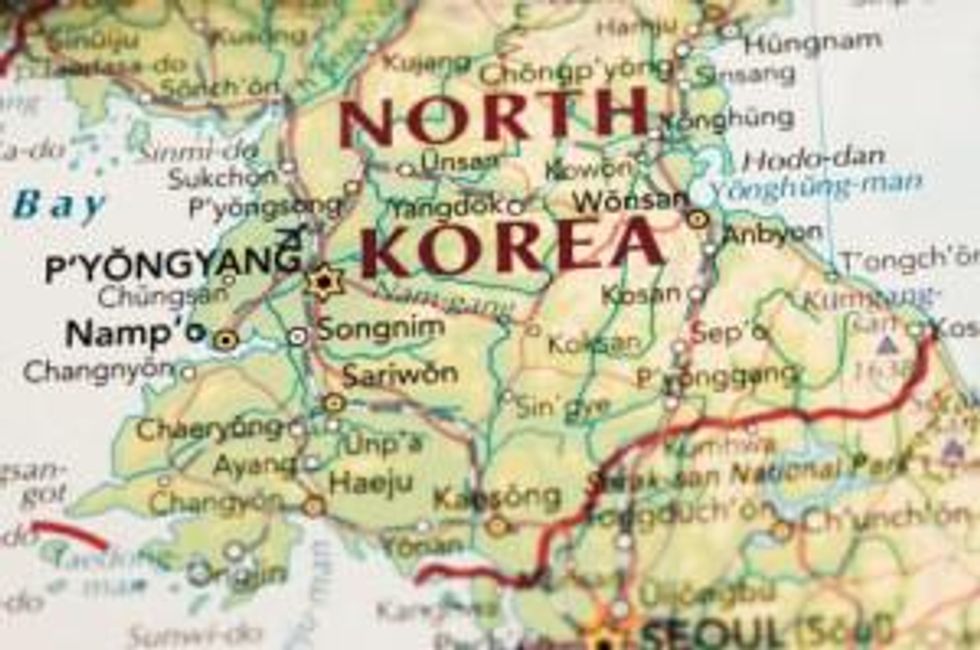Could North Korea Be the Next Rare Earth Powerhouse?
News that China has signed an agreement with North Korea to expand trade between the two nations has led to speculation that China is seeking to unlock the reclusive state’s rare earth potential.
While China’s dominance of the rare earth element (REE) market is nothing new, news that the mining giant and North Korea have signed a deal aimed at broadening the trade of both countries surprised investors.
The news, released last week, has sparked speculation that China is likely seeking possible investment opportunities aimed at the notoriously secretive state’s mining potential, specifically that of rare earths.
According to a statement released by Chinese Vice Commerce Minister Chen Jian, the government is willing to “support big Chinese companies who are willing to invest in North Korea to broaden the economic and trade cooperation with North Korea, to push the two sides to upgrade two-way trade and investment structures and study the feasibility of cooperation on big projects.”
The statement does not underline what the actual investment might be; however, speculators argue that it is likely to be aimed at North Korea’s mineral sector, which some estimate is worth more than $6 trillion — including a large number of rare earth metals. China does not currently adhere to the US and United Nations sanctions that restrict North Korea’s trade.
Potential remains unknown
While the actual potential of North Korea’s REE reserves is still unknown, the recent deal is not the first time a foreign country has shown interest its supplies. Last month, investors learned that in 2011 South Korea’s state-owned commodities developer held talks in North Korea about a possible North-South project aimed at developing REE deposits. The talks took place as part of a second round of discussions about a graphite development project in the North that Korea Resources (KOSDAQ:033430) invested in a decade ago.
Last year, North Korea’s state-run Korean Central News Agency confirmed that Pyongyang was paying increasing attention to the global race to secure REEs, later announcing that local exploration companies had uncovered deposits amounting to approximately 20 million tons. However, while many have brushed off these reports as nothing more than propaganda from a government-controlled mouthpiece, there have been signs that the country is attempting to build upon the sector, such as the construction of a rare earth processing plant in Hamhung in 1990.
According to South Korea’s National Statistical Office, the potential value for key mineral deposits in North Korea is currently set at $6.09 trillion (in the base year of 2008), while its exports of rare metals to China stood at $16 million (1.27 billion yen) in 2009. Despite these numbers, the true potential of North Korea’s reserves remains relatively unknown as the country has not yet begun full exploration or undertaken feasibility studies.
Political ramifications
The agreement could have hard-hitting political repercussions.
In an interview with World Politics Review, Daniel Sneider, associate director for research at the Walter H. Shorenstein Asia-Pacific Research Center at Stanford University said that by embracing an open market, North Korea will effectively be confirming that its system has failed. When questioned on how economic ties with North Korea might benefit China, he outlined mineral resources ranging from REEs to coal as being integral to the Asian giant’s future economic and social progression.
“The Chinese have a huge appetite for that, and they are trying to get it cheap, because they know North Korea is pretty desperate,” he said. “China is the source of consumer goods as well as food and energy for North Korea, so that is basically the nature of the economic exchange between the two.”
China’s motives
While China could be seen as noble for wanting to advance the traditionally secretive nation via trade, the overture could also be viewed as merely making another attempt to gain more of a monopoly over a market that it already has a tight reign over.
China has come under increased criticism of late, with its trade partners claiming that it is setting out to create the ultimate monopoly by driving up export costs and restricting supplies in the hope that manufacturers will be forced to relocate facilities to China. Last month the World Trade Organization confirmed that it will investigate China’s export and tariff policies following complaints from the US, European Union and Japan that the restrictions break global commerce rules.
Effect on the market
News of the agreement has not yet had any profound effect on the market. While a partnership like this has the potential for longer-term repercussions in relation to market supply, the fact of the matter remains that North Korea is unable to actively influence the market as it has not yet undertaken the proper groundwork in relation to exploration and evaluation.
While speculation might create short-term price volatility, the majority of REE investors will be more focused on companies that are nearer to bringing mines into production as opposed to those that have yet to prove their worth.
